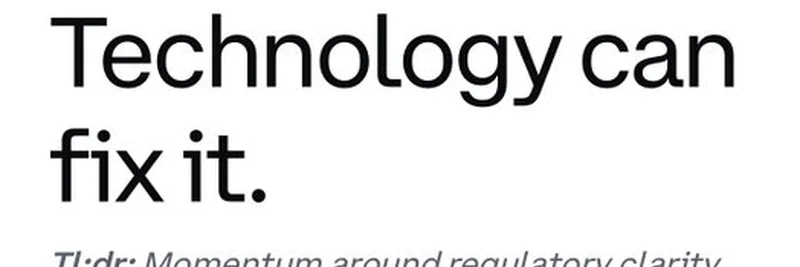Hey there, crypto enthusiasts and blockchain practitioners! If you’ve been keeping an eye on the latest buzz in the crypto world, you might have stumbled across a thought-provoking thread from Paul Grewal, the Chief Legal Officer at Coinbase. Posted on August 4, 2025, his tweet thread dives into a pressing issue: the outdated Bank Secrecy Act (BSA) and how technology could be the key to fixing it. Let’s break it down and see what this means for the future of finance and privacy.
What’s the Bank Secrecy Act, and Why Is It Broken?
The Bank Secrecy Act, established way back when paper records ruled the world, was designed to prevent money laundering and other financial crimes. It requires banks to report transactions over $10,000 and maintain detailed records. Sounds reasonable, right? But here’s the catch: money today lives on the internet, zipping through digital wallets and blockchain networks at lightning speed. The BSA, with its old-school approach, struggles to keep up, often forcing banks to collect massive amounts of customer data—creating what Grewal calls a “data dragnet.”
This overcollection raises serious privacy concerns. Imagine every time you buy a coffee with your crypto wallet, your personal info gets scooped up and stored. That’s not just inconvenient—it’s a potential goldmine for hackers or misuse by agencies. Grewal argues this system is broken and needs a modern overhaul.
Enter Technology: Zero-Knowledge Proofs to the Rescue
So, how can tech save the day? Grewal points to Zero-Knowledge Proofs (ZKPs), a cryptographic wizardry that’s gaining traction in the blockchain space. Don’t worry if that sounds complex—think of ZKPs as a way to prove something is true without revealing the details. For example, you could prove you’re over 21 to buy a drink without showing your full ID.
In the context of the BSA, ZKPs could allow banks to demonstrate compliance with anti-money laundering rules without handing over sensitive customer data. This means less exposure to risks like data breaches and a smoother experience for you, the user. Grewal suggests this could streamline transaction monitoring and reduce the privacy trade-offs we’ve come to accept.
Why This Matters for Crypto and Beyond
As someone who’s spent time at CoinDesk and now helps build the knowledge base at meme-insider.com, I see this as a game-changer for the crypto community. Coinbase, where Grewal works, is a major player in the crypto exchange world, and their push for regulatory clarity could set a precedent. If the BSA gets a tech-powered makeover, it might pave the way for broader adoption of blockchain technologies, including those funky meme tokens we love to track!
But it’s not all smooth sailing. Some X users in the thread, like @Crypt0Panda, suggest that agencies might see the data dragnet as a “feature, not a bug.” Others, like @MetaLawMan, question why Coinbase hasn’t already used ZKPs for its own customers. These debates highlight the challenges of balancing innovation with entrenched interests.
What’s Next?
Grewal’s call to action is clear: it’s time for Congress to modernize the BSA. Whether that happens depends on policymakers catching up with tech trends. For now, this thread sparks an exciting conversation about privacy, compliance, and the future of finance. If you’re a blockchain practitioner, keep an eye on this space—tools like ZKPs could soon become essential in your toolkit.
What do you think? Can technology truly fix the BSA, or are we dreaming a little too big? Drop your thoughts in the comments, and let’s keep the discussion going. For more insights into blockchain trends and meme tokens, stick with us at meme-insider.com!


